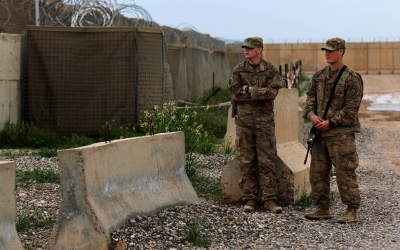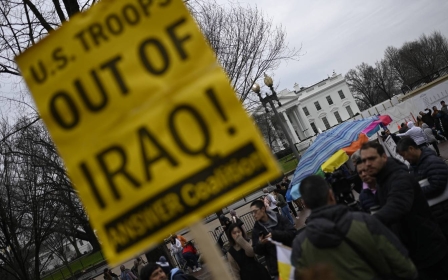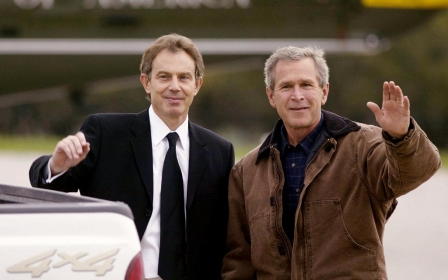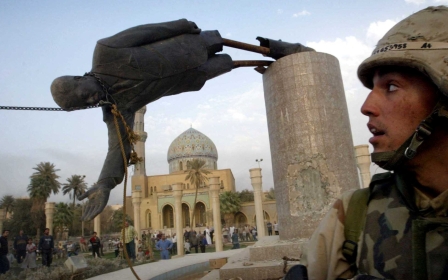US Senate advances bill to repeal Iraq, Gulf war authorisations
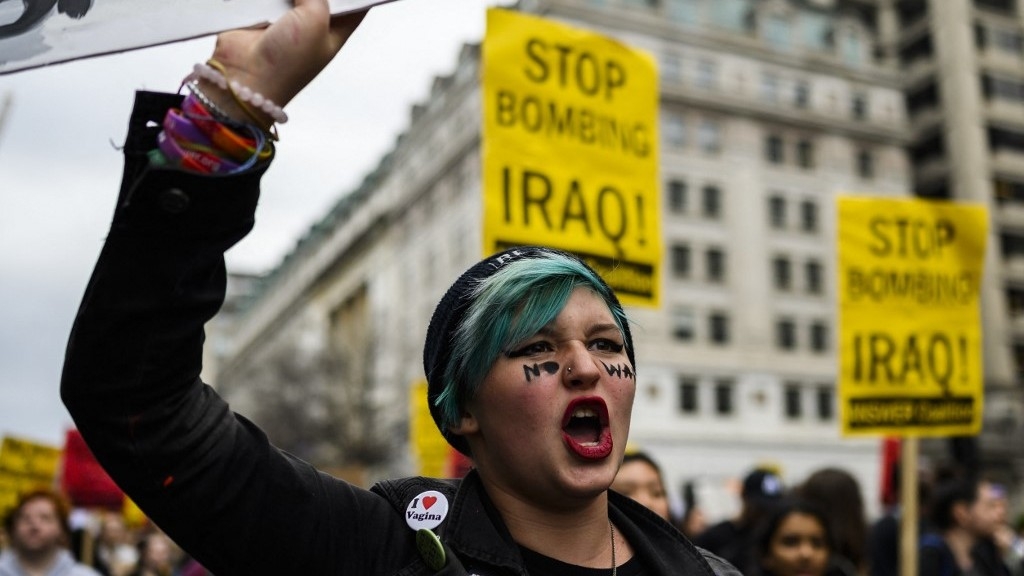
The US Senate advanced a bill that would end two congressional resolutions which authorised the use of military force in Iraq in 1991 and 2002.
The Authorization for Use of Military Force (AUMF) resolutions (1991 and 2002) gave the president the ability to wage military action without the need for Congress' approval, as laid out in the specific terms set in the measures.
New MEE newsletter: Jerusalem Dispatch
Sign up to get the latest insights and analysis on Israel-Palestine, alongside Turkey Unpacked and other MEE newsletters
"The Iraq War has itself been long over. This AUMF outlived its purpose and we can no longer justify keeping it in effect," Senator Chuck Schumer said ahead of the vote.
“Every year we leave the Iraq AUMFs on the books is another year that a future administration can abuse them.”
The legislation to repeal the AUMFs was introduced by co-sponsors Democrat Tim Kaine and Republican Todd Young. It advanced on Thursday by a 68 to 27 procedural vote. The final vote will take place as soon as next week, around the anniversary of the US invasion of Iraq in March 2003.
The vote on Thursday comes after the US Senate Foreign Relations Committee voted to advance the bill last week. In 2021, the House voted in favour of repealing the 2002 AUMF, but it wasn’t voted on by the Senate. The final step will see the resolution go to Congress for a vote.
Replacing ‘outdated’ authorisations
The White House on Thursday signalled its support and said the repeals would have “no impact on current US military operations”.
“President Biden remains committed to working with Congress to ensure that outdated authorizations for the use of military force are replaced with a narrow and specific framework more appropriate to protecting Americans from modern terrorist threats,” the statement said.
“Toward that end, the Administration will ensure that Congress has a clear and thorough understanding of the effect of any such action and of the threats facing US forces, personnel, and interests around the world.”
The 1991 and 2002 AUMFs authorised the use of armed forces against Saddam Hussein's government in Iraq. The former was used in response to Iraq's 1990 invasion of Kuwait, while the latter was used for the US's 2003 invasion of Iraq. But since then, the AUMF has been used by successive US presidents although the Iraq war has ended.
The 2002 AUMF was cited by the former Donald Trump administration as the legal justification for the 2020 US strike that killed top Iranian general Qassem Soleimani.
But while the measure would repeal the 2002 and 1991 AUMFs, it would not undo the wider-ranging 2001 AUMF.
US Senator Rand Paul, a longtime proponent of repealing the authorisations, told Politico on Thursday that he is considering whether to introduce an amendment to repeal the 2001 AUMF, which was passed in the wake of the 9/11 attacks.
The open-ended nature of the 2001 AUMF has allowed multiple presidents to wage war against a number of militant groups, including al-Qaeda, the Taliban, al-Shabab, and the Islamic State (IS).
Kaine, a co-sponsor of the legislation, told Politico that the 2001 AUMF should be "dramatically revised", but said repealing it altogether would not get as much support in Congress.
“You’d get a lot fewer votes for that than you would for the Iraq repeal,” he said.
Middle East Eye delivers independent and unrivalled coverage and analysis of the Middle East, North Africa and beyond. To learn more about republishing this content and the associated fees, please fill out this form. More about MEE can be found here.


